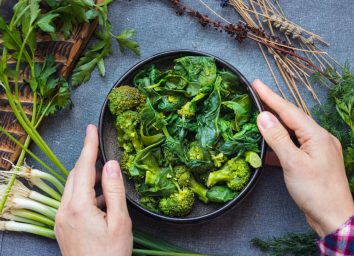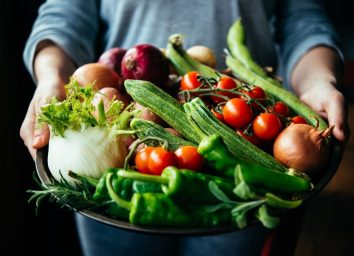6 Best Leafy Greens You Should Be Eating Every Day, Say Dietitians
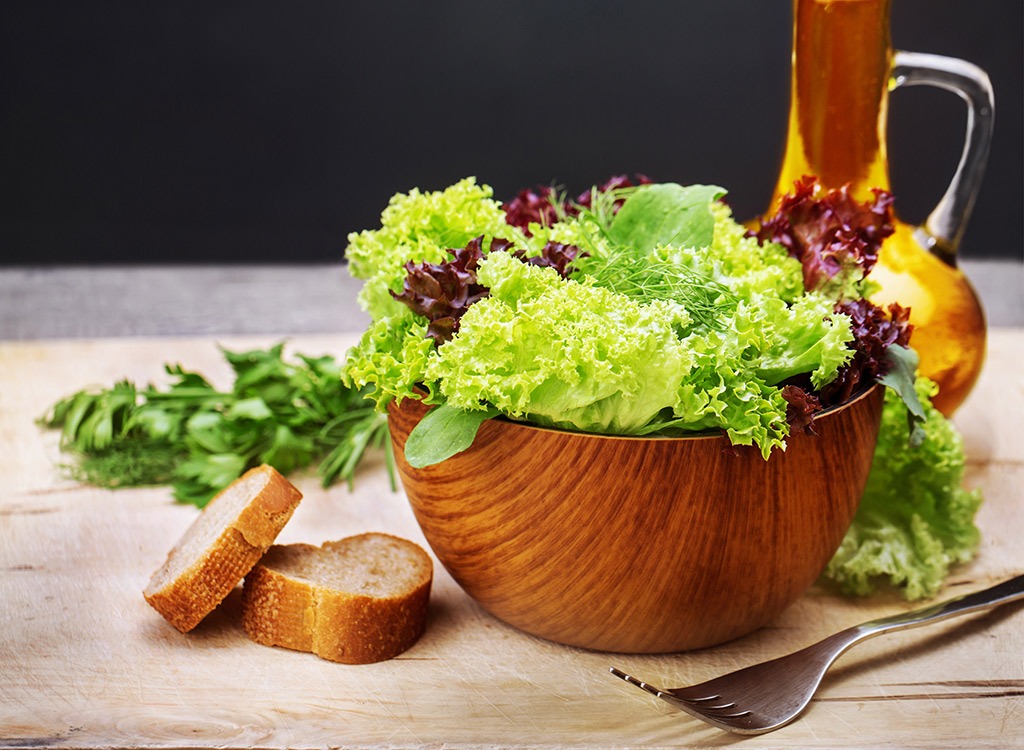
We all know that vegetables are an essential part of a healthy diet. Not only are they chock-full of vitamins, minerals, and fiber, but they can also be easily incorporated into just about every meal. When it comes to incorporating them into your routine, the USDA’s 2020–2025 Dietary Guidelines recommend that Americans vary their vegetable consumption, highlighting dark green vegetables as one key category.
Whether you’re folding them into your omelet, blending them into a smoothie, or sneaking them into a burrito, leafy greens are the perfect vehicle for adding nutrients to any dish. These greens are technically the leaves of various plants, with the most common being kale, spinach, broccoli sprouts, bok choy, watercress, and dandelion greens. While all leafy greens are full of nutrients, there are specific types that are the most concentrated, and therefore considered the “best” by some of our experts.
To learn more about the best leafy greens to eat every day, we consulted Medical Expert Board members Tammy Lakatos Shames, RDN, CDN, CFT, and Lyssie Lakatos, RDN, CDN, CFT, also known as The Nutrition Twins. Read on to see what these registered dietitians had to say—then for more healthy eating tips, check out The #1 Best Vegetable To Lower Blood Sugar.
Kale
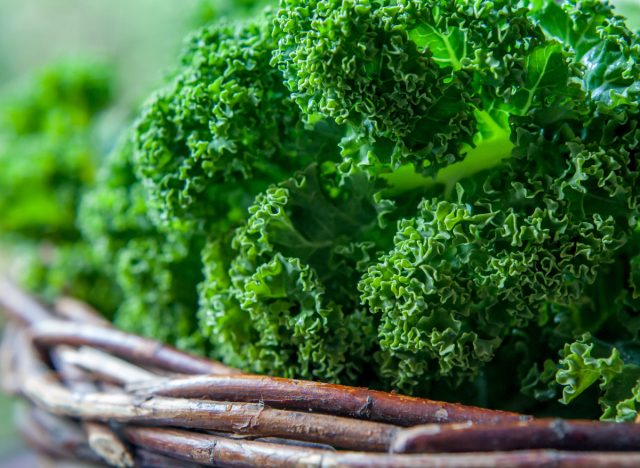
Kale is rich in tons of vitamins and nutrients, and its versatile enough to enjoy raw, in a salad, sautéed, baked, or even thrown into a smoothie.
Of all the leafy greens, kale has one of the highest counts of vitamin C at around 22% of your daily value per serving. Vitamin C is a necessary antioxidant that can help your body fight off free radical damage and can also help in building a strong immune system. Kale is also high in vitamin K (about 68% of your daily recommended value), which can aid in bone and immune health.
This leafy green also contains certain cancer-fighting substances, such as sulforaphane. According to the Journal of Agricultural and Food Chemistry, sulforaphane may be able to block certain cancer cells from fully forming at the molecular level.
Dandelion greens
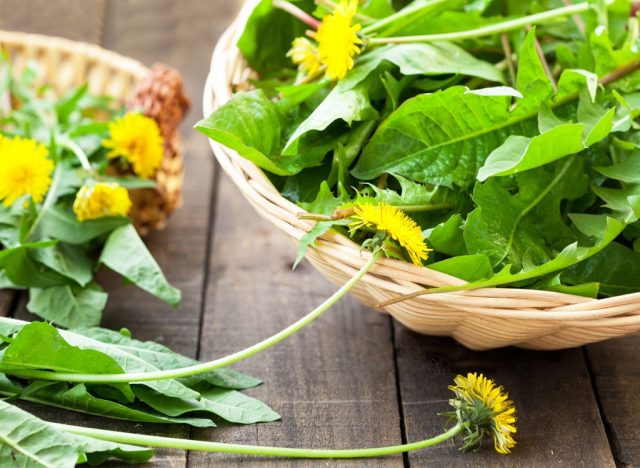
Dandelion greens are probably not in your usual veggie rotation—but they should be. “One of the reasons that these greens are so powerful is that they help increase bile flow, breaking down fats, easing digestion, and aiding the liver, protecting it and helping it to filter potentially damaging chemicals out of your food,” The Nutrition Twins say.
Teeming with antioxidants like beta carotene, dandelion greens have been shown to protect against cell damage, which can ultimately help fend off chronic diseases. Plus, their rich source of lutein and zeaxanthin supports eye health, while their vitamin C and K content helps promote healthy bones. And that’s not all these leafy greens can do.
“One of their true superpower qualities is that they’re a rich source of gut-friendly prebiotics, thanks to their inulin,” The Nutrition Twin say. “They enhance the gut’s production of ‘good’ bifidobacteria, which helps to boost immune function and may even help to prevent cancer.”
Bok choy
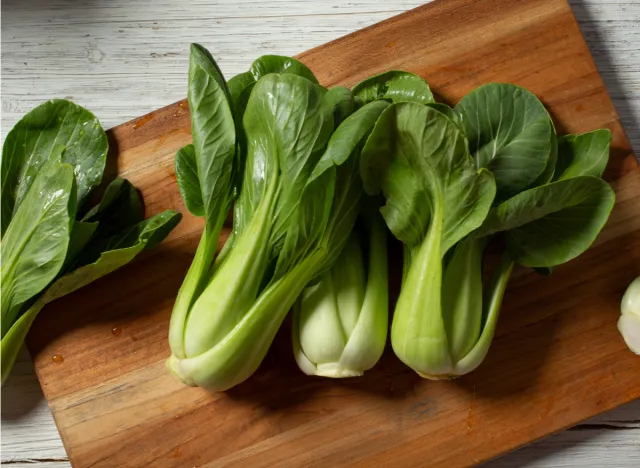
Bok choy is a cruciferous vegetable, which means it’s in the same family as broccoli, Brussels sprouts, and cabbage. “Cruciferous vegetables reduce the risk of cancer and contain carcinogen-fighting nutrients like vitamin C, E, beta-carotene, folate, and selenium, which has been shown to slow tumor growth,” The Nutrition Twins say.
In addition to being packed with bone-building vitamins and minerals like calcium, iron, phosphorus, magnesium, and vitamin K, bok choy is rich in quercetin—a flavonoid that has been linked to reduced inflammation and protection against chronic diseases. For a nutrient-dense meal, The Nutrition Twins suggest chopping up this leafy green and adding it to a stir fry.
Broccoli sprouts
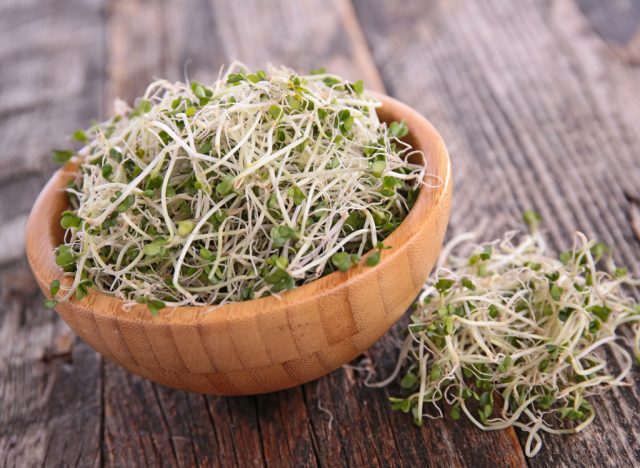
If you’re bored of broccoli, why not give broccoli sprouts a try? These leafy greens are broccoli plants that are around 3 to 5 days old with small green leaves that resemble alfalfa sprouts. While they offer the same number of calories and macronutrients as broccoli per ounce, they pack around 100 times more glucoraphanin.
“…when chewed or cut, [glucoraphanin] is converted into the superstar phytochemical sulforaphane, which has powerful anti-cancer effects, including promoting cancer cell death [and] lowering inflammation and susceptibility to cancer-causing toxins,” The Nutrition Twins say. “Sulforaphane increases detoxifying enzymes in your liver, and it even may help to turn off certain genes involved in cancer.”
Watercress
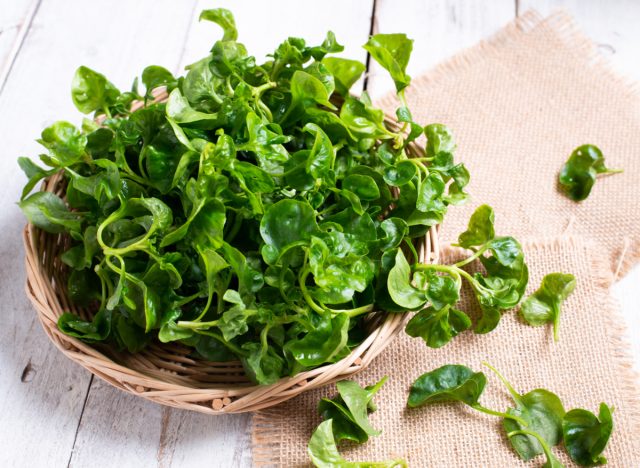
This cruciferous veggie has a slightly spicy and peppery flavor—along with a slew of health benefits. According to a ranked list of “powerhouse fruits and vegetables,” the CDC crowned watercress as the most nutrient-dense vegetable. This means it contains the most nutrients in the fewest number of calories. Therefore, this green is especially helpful when it comes to disease prevention and weight loss.
Additionally, The Nutrition Twins highlight that watercress contains high amounts of digestion-promoting fiber, immune-supporting vitamin C, disease-preventing glucosinates, and more. “One of the standouts in this powerhouse is its vitamin K, an extremely important (and overlooked) critical nutrient for bone health,” The Nutrition Twins say. “Just one cup of watercress provides over 100% of the [recommended daily intake] for vitamin K.”
With this leafy green being so versatile, The Nutrition Twins recommend adding it to salads, soups, stir-fries, and even pizza.
Spinach
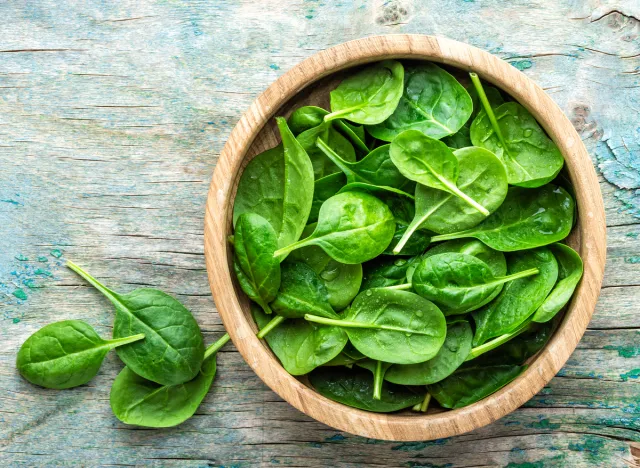
Spinach is full of carotenoids, which help “mop up” free radicals known for creating cell damage, The Nutrition Twins explain. They also note that research has shown these leafy greens to protect against stomach, colon, mouth, and esophagus cancers.
As a rich source of potassium, spinach has been linked to lowered blood pressure, while its lutein content has been tied to boosted cognitive function. And beyond its nutritional benefits, this vegetable boasts a versatile flavor profile. “Spinach is so mild that it’s like a chameleon, and it can be mixed into foods like smoothies and be undetectable, making it the perfect veggie for people who have a hard time enjoying green vegetables,” The Nutrition Twins say.
A previous version of this story was published on June 19, 2022. It has been updated to include additional copy and proofreading revisions, additional research, and updated contextual links.

